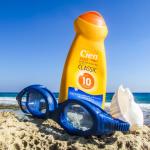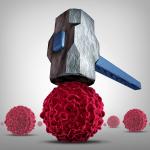Spring break is a chance for many of us to greet the sun, warmth, and the return of spring with its promise of summer.
sunscreen
Sometimes, health advice is too good to be true. Eat pomegranates to prevent cancer. Organic food will make your kids smarter. Use sunscreen to treat an autoimmune disease.
A strange but interesting paper by scientists at The University of Wisconsin, which just appeared in PNAS, examines whether two similar sunscreen chemicals, homosalate&
Welcome to the conclusion of this two part series on the newest hot topics in melanoma research.
Did you know Bob Marley died of melanoma? Or, that Jimmy Carter was recently ‘cured’ of metastatic melanoma? Many misperceptions abound with respect to skin cancer —specifically melanoma, so we will address them here in this two part s
Oh, the ole sun debate: Get too much and you risk getting skin cancer; get too little and you may lack vitamin D. The struggle is real. So, how to find the balance?











